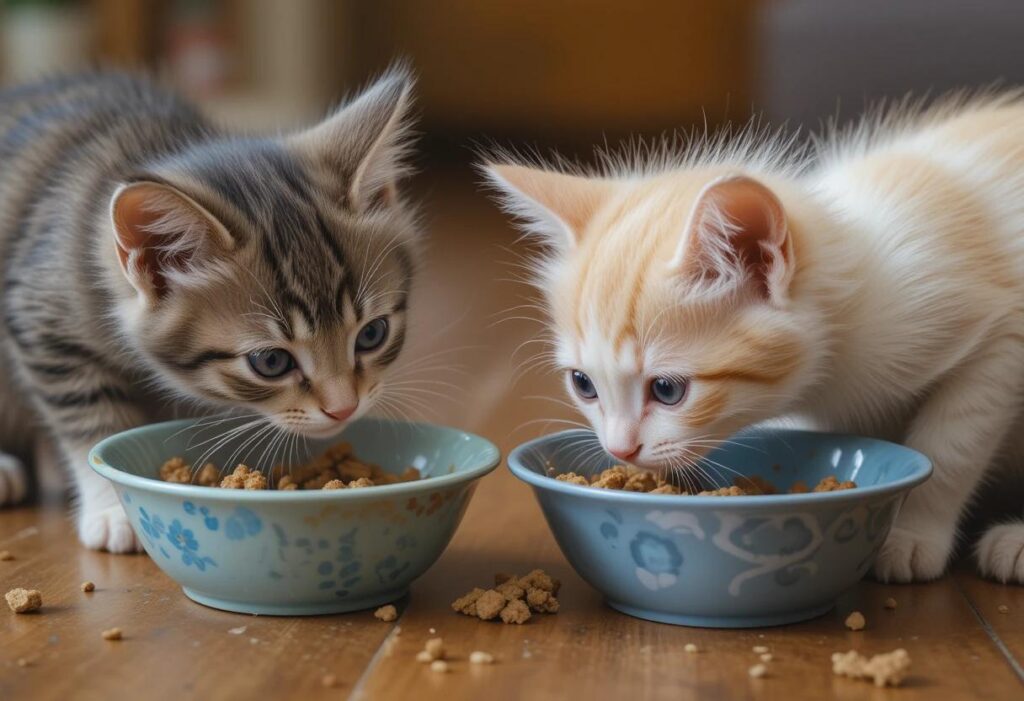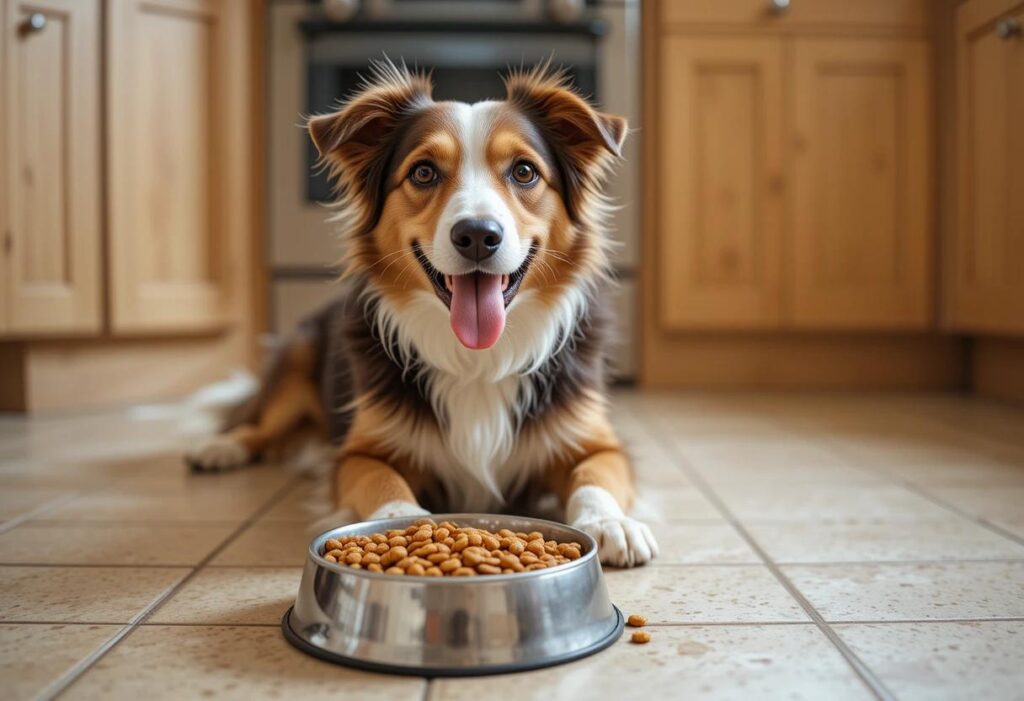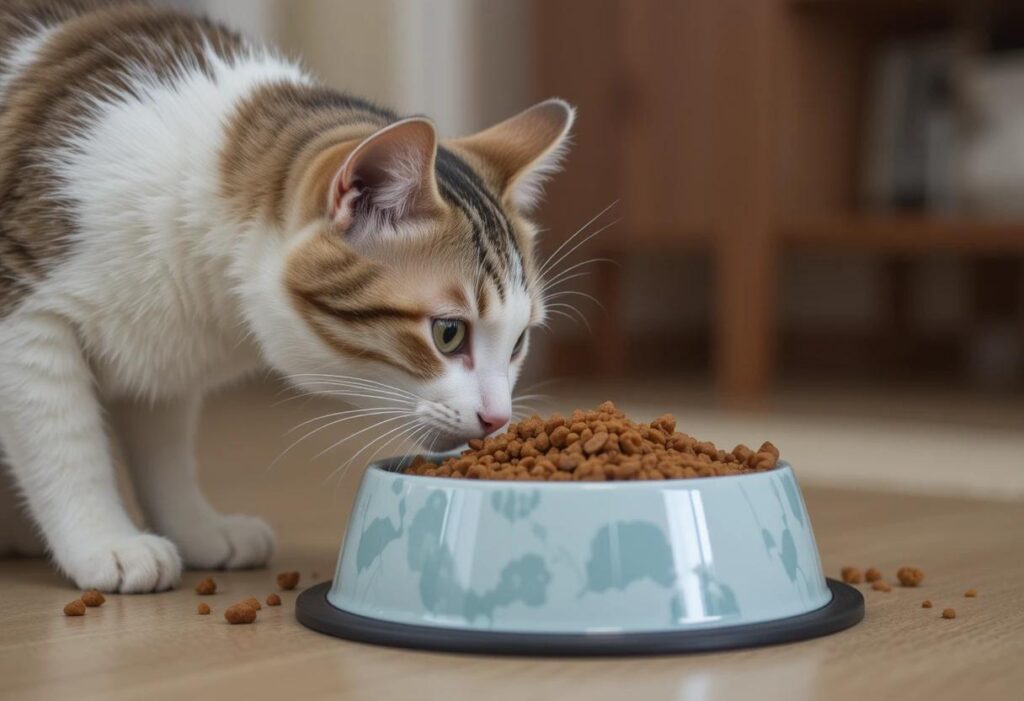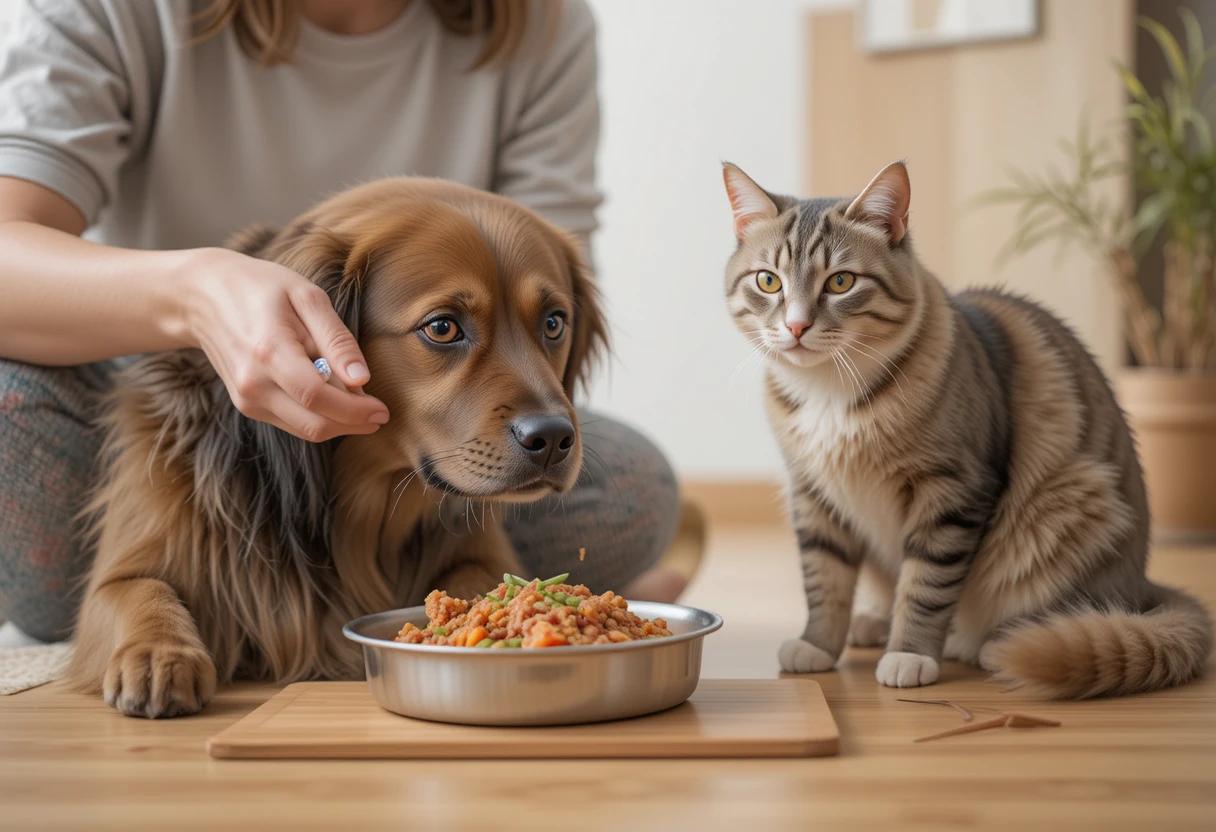As pet owners, we want our furry friends to lead long, healthy, and happy lives. One of the most important aspects of keeping them healthy is ensuring that they get the right nutrition. Whether you have a playful dog, a curious cat, or both, understanding their nutritional needs is essential. Proper pet nutrition supports not only their physical health but also their emotional well-being.
In this guide, we will explore everything you need to know about providing the optimal pet nutrition, including choosing the right food, feeding schedules, portion control, and special dietary needs for both dogs and cats.
Table of Contents
Understanding Your Pet’s Nutritional Needs
Every pet has its own unique set of nutritional needs. It is crucial to understand the differences between dogs and cats when it comes to their diets. Dogs and cats have different biological requirements, which means their nutritional needs vary significantly.
Dogs: Omnivores Who Need a Balanced Diet
Dogs are omnivores, which means they can eat both plant and animal-based foods. Their diet should include a balance of proteins, fats, carbohydrates, vitamins, and minerals. While dogs can eat fruits and vegetables, animal-based proteins should make up the bulk of their diet. Dogs need these proteins for muscle growth, repair, and overall body function. Additionally, healthy fats are important for energy and maintaining a shiny coat.
Essential Nutrients for Dogs:
- Proteins: Chicken, beef, lamb, and fish provide essential amino acids that help build muscles and tissues.
- Carbohydrates: Carbs like sweet potatoes, rice, and oats provide energy and support healthy digestion.
- Fats: Fish oil, chicken fat, and flaxseeds are excellent sources of omega-3 and omega-6 fatty acids that promote healthy skin and coat.
- Vitamins and Minerals: Dogs need essential vitamins and minerals such as vitamin A, D, E, calcium, and phosphorus for healthy bones, vision, and immune function.
Cats: Obligate Carnivores Who Depend on Meat
Unlike dogs, cats are obligate carnivores. This means they rely on a diet that is primarily made up of animal-based foods. Cats cannot thrive on plant-based diets because they need high levels of specific nutrients found only in meat, such as taurine, arachidonic acid, and vitamin A. Taurine is a critical amino acid for cats’ heart and eye health.
Essential Nutrients for Cats:
- Proteins: Meat-based proteins such as chicken, turkey, and fish are essential for maintaining muscle mass and overall health.
- Fats: Animal fats, including chicken fat and fish oil, provide energy and support a healthy coat.
- Taurine: Taurine is an essential amino acid for heart and eye health.
- Vitamins and Minerals: Cats need a variety of vitamins, such as vitamin A (for vision) and vitamin B (for metabolism), and minerals like calcium for strong bones.

Choosing the Right Pet Food
- Commercial Pet Food:
- Homemade Diets:
- Homemade diets for dogs and cats should be prepared under a veterinarian’s guidance to ensure they meet all nutritional requirements.
- Breed and Age Considerations:
- Puppies and kittens require food designed for growth, rich in protein and calories, while adult and senior pets need foods that cater to their specific activity levels and health needs.
Choosing the right food for your pet is the foundation of providing them with optimal nutrition. There are many types of pet food available on the market, and understanding which one is best for your pet’s health is key.
Commercial Pet Food: The Convenient Option
Most pet owners choose commercial pet food for convenience, and it is widely available. The best commercial food options are typically labeled as “complete and balanced,” which means they meet the nutritional requirements set by the Association of American Feed Control Officials (AAFCO).
For Dogs:
- Kibble: Dry dog food is a popular choice because it’s affordable, convenient, and helps maintain dental health by scraping plaque off their teeth as they chew. However, make sure the kibble contains high-quality animal proteins as the first ingredient.
- Wet Food: Canned dog food is often more appetizing to dogs and contains more moisture, which can help with hydration.
- Freeze-Dried Food: Freeze-dried meals retain more of the nutrients from raw ingredients and can be a good option for pets with food sensitivities.
For Cats:
- Wet Food: Cats generally prefer wet food because it is closer to their natural prey, which is high in moisture. It also helps prevent urinary tract issues, especially in cats that are prone to dehydration.
- Dry Food: While dry food is convenient, it should not be the only option for cats, as it does not provide enough moisture to support kidney health and urinary function.
Homemade Diets: A Personalized Approach
Homemade diets are an option for pet owners who want to have more control over the ingredients in their pet’s food. However, preparing homemade meals requires careful planning to ensure your pet receives all the necessary nutrients.
It is always a good idea to consult with a veterinarian or pet nutritionist before switching your pet to a homemade diet. A veterinary nutritionist can help you create a well-balanced meal plan that ensures your dog or cat gets the right amount of protein, fat, vitamins, and minerals.
Breed and Age Considerations
The nutritional needs of your pet will vary based on their breed, age, and activity level. For example, large-breed puppies need more calories and protein to support their growth, while senior dogs may need a diet that supports joint health and weight management.
- Puppies & Kittens: These young pets require food that promotes growth and development. High-quality protein and extra calories are essential.
- Adult Dogs & Cats: After reaching adulthood, pets need a more balanced diet suited to their activity level. Overfeeding should be avoided to prevent obesity.
- Senior Pets: Older pets may need food that is easier to digest, supports joint health, and helps manage weight. Senior diets are typically lower in calories and higher in fiber.
Feeding Schedules for Optimal Pet Nutrition
Establishing a consistent feeding schedule is essential to maintaining your pet’s health. A regular feeding routine helps prevent overeating and digestive issues.
Dogs:
- Puppies (Under 6 months): Puppies need 3-4 meals a day to support their rapid growth and energy levels.
- Adult Dogs (6 months to 7 years): Most adult dogs thrive on two meals a day. Stick to consistent mealtimes to prevent overeating.
- Senior Dogs (Over 7 years): Senior dogs may require more frequent, smaller meals depending on their health and activity level. Consult with your vet for guidance.
Cats:
- Kittens (Under 6 months): Kittens should be fed 3-4 times a day to support their energy and growth.
- Adult Cats (6 months to 7 years): Adult cats typically do well with two meals a day. Some cats prefer to graze, but it’s important to manage their portions to avoid overeating.
- Senior Cats (Over 7 years): Older cats may require adjustments to their feeding schedule based on their health and specific dietary needs.
Portion Control for Optimal Pet Nutrition
Proper portion control is crucial for your pet’s health. Overfeeding can lead to obesity, while underfeeding may result in malnourishment. Always follow the pet food label guidelines and adjust portions based on your pet’s size, breed, and activity level.
Special Nutritional Needs
- Dogs: Large breeds may need joint supplements, and small breeds may require calorie-dense food. Dogs with allergies might benefit from hypoallergenic or grain-free diets.

- Cats: Indoor cats might need food tailored for weight management, while those with urinary or kidney issues will require specialized diets.
Hydration Matters
Both dogs and cats need access to fresh water at all times. In addition, for cats, especially those on dry food diets, it’s essential to consider providing wet food or adding moisture to their meals to ensure they stay hydrated. Without proper hydration, pets can suffer from urinary tract issues, kidney problems, or general lethargy.
Foods to Avoid
Furthermore, certain human foods are toxic to pets and can lead to severe health issues. Therefore, it’s crucial to avoid giving your pets these foods:
- For Dogs: Steer clear of chocolate, grapes, raisins, onions, garlic, and caffeine, as these can be harmful and, in some cases, deadly.
- For Cats: Similarly, avoid onions, garlic, alcohol, and raw fish, as these can cause digestive issues and long-term health problems.
Monitoring Your Pet’s Health
In addition to feeding, it’s important to regularly assess your pet’s overall health. Pay attention to their weight, energy levels, and coat quality to ensure they are thriving on their current diet. Moreover, sudden changes in appetite, vomiting, or diarrhea may indicate food-related issues. If these occur, it’s best to consult with a veterinarian promptly to address any potential concerns.
Homemade Treats and Snacks
While commercial treats are convenient, homemade options can also be a healthy alternative. For example, boiled chicken, plain yogurt, or small pieces of carrot can serve as nutritious treats. However, it’s important to limit treats to no more than 10% of their daily caloric intake to avoid disrupting their balanced diet.
Transitioning to New Food
Additionally, when switching your pet’s food, it’s crucial to do so gradually. Over a period of 7-10 days, start by mixing a small portion of the new food with the old. Then, progressively increase the proportion of new food each day to avoid digestive upset. A slow transition helps your pet’s stomach adjust and prevents any discomfort.
Nutritional Supplements
Some pets may benefit from nutritional supplements, especially if they have specific health issues. Common supplements for pets include:
- Omega-3 Fatty Acids: Great for promoting a shiny coat and reducing inflammation.
- Glucosamine: Helps with joint health and mobility, particularly for older dogs.
- Taurine: Vital for heart and eye health in cats.
Always consult with your veterinarian before adding any supplements to your pet’s diet to ensure they are safe and appropriate.

Common Feeding Mistakes to Avoid
Additionally, there are several common feeding mistakes pet owners should avoid to ensure their pets stay healthy:
- Free-feeding dogs: This practice can lead to obesity and other health issues. Instead, establish a regular feeding schedule.
- Offering table scraps: Table scraps can disrupt your pet’s balanced diet and contribute to unhealthy eating habits.
- Feeding cats dog food: Dog food lacks essential nutrients like taurine, which are vital for a cat’s health.
- Ignoring portion sizes: Overfeeding or underfeeding can result in weight gain or malnutrition. Always follow recommended portion guidelines.
Creating a Feeding Routine
To further support your pet’s health, create a consistent feeding routine. Serve meals at the same times daily, and use appropriate bowls—shallow ones for cats and size-appropriate bowls for dogs. Moreover, providing a quiet and calm feeding space will ensure your pet feels safe and stress-free during mealtime.
Final Thoughts
Optimal pet nutrition is essential for the health and happiness of your dog or cat. By understanding their dietary needs, choosing the right food, and creating a feeding routine, you can ensure that your pet lives a long, healthy life. Always consult with your veterinarian to tailor your pet’s diet to their specific needs, and enjoy many happy years together!
Ready to Become the Best Dog Parent Ever?
Is Your Dog Ready to Live Their Best Life?
Ready to Become the Best Cat Parent Ever?
FAQs
What’s the best food for my dog or cat?
The best food for your pet depends on their specific dietary needs, age, and health. For dogs, choose food with balanced proteins, fats, and carbs. Cats need food rich in animal-based proteins since they are obligate carnivores. Look for food labeled “complete and balanced” that meets AAFCO standards and consult your vet for personalized advice.
Can I feed my dog or cat homemade food?
Yes, but homemade diets need to be carefully planned to meet your pet’s nutritional requirements. Dogs and cats need specific nutrients that may be difficult to provide without guidance. Always consult your vet or a pet nutritionist before switching to homemade food to ensure it’s nutritionally balanced.
How do I know how much to feed my dog or cat?
The right portion size depends on your pet’s size, breed, age, and activity level. Check food packaging for portion guidelines, but monitor your pet’s weight and condition. If your pet is too thin or overweight, adjust their food portions accordingly and ask your vet for recommendations.
Can I feed my dog or cat human food?
Some human foods are safe in moderation, like cooked chicken or carrots, but many human foods are harmful. Never feed pets chocolate, onions, grapes, raisins, or alcohol. Always research whether a specific human food is safe for your pet before offering it.
Should I switch my pet’s food to a grain-free diet?
Grain-free diets aren’t necessary for all pets, and they might not always be the best choice unless your pet has specific food sensitivities. If your pet doesn’t have allergies or sensitivities to grains, a balanced food with grains like rice or oats can be perfectly fine. Consult with your vet to determine if a grain-free diet is right for your pet.
How can I help my dog or cat maintain a healthy weight?
To maintain a healthy weight, feed your pet the appropriate portion sizes for their age, breed, and activity level. Regular exercise, a balanced diet, and avoiding overfeeding treats or table scraps are essential. Keep track of your pet’s body condition and consult your vet if weight management becomes an issue.
Can I give my pet treats?
Yes, but treats should be given in moderation. They should make up no more than 10% of your pet’s daily caloric intake to prevent obesity. Choose healthy, pet-safe treats, or offer small portions of fruits, vegetables, or lean meat as snacks. Avoid treats with artificial additives or too many calories.
How do I transition my pet to a new food?
When switching foods, do so gradually over 7-10 days to prevent digestive upset. Start by mixing a small amount of the new food with the old food, then gradually increase the proportion of new food while decreasing the old food. Monitor your pet’s response to the new food and consult your vet if any issues arise.
How do I know if my dog or cat has food allergies?
Common signs of food allergies in pets include itching, gastrointestinal issues, or ear infections. If you suspect a food allergy, consult your vet. They may recommend an elimination diet, where you feed your pet a limited ingredient food and gradually reintroduce other ingredients to identify the cause.
Should I give my pet nutritional supplements?
Nutritional supplements can be beneficial for pets with specific health issues, but it’s essential to consult your vet first. Common supplements include omega-3 fatty acids for coat health or glucosamine for joint support. Your vet will advise on whether supplements are necessary for your pet’s diet and health needs.

